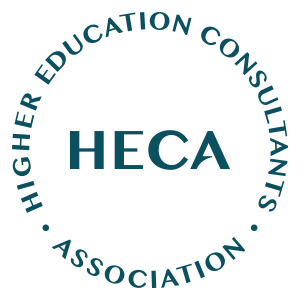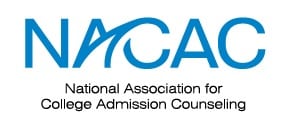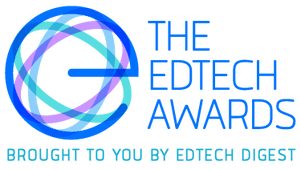How LifeLaunchr's Coaching Works

Welcome to LifeLaunchr, a comprehensive coaching program designed to guide parents and students through the college application process, helping students find and secure a spot in their best-fit college. Our coaching services use LifeLaunchr’s proprietary platform and tools, which offer unique benefits to students seeking college admission. Please follow the program as intended to maximize its benefits.
LifeLaunchr Tools
LifeLaunchr’s platform provides easy-to-use tools for every step of the college admissions process. These tools help students manage their college research, craft great applications, and apply for financial aid and scholarships. Students and parents can explore these tools on their Member Dashboard. There students and parents can:
- Build college lists and research colleges
- Find colleges that fit their requirements
- Research colleges
- View college profiles
- Track college deadlines, requirements, and admissions priorities
- Explore careers and majors
- Research majors
- Explore careers
- Take personality, aptitude, and interest tests
- Draft winning essays
- Use our courses to craft great essays
- Track essays for every college
- Get detailed written feedback on essays
- Discover scholarships and maximize financial aid
- Find and track scholarships
- Get help with financial aid and scholarships
- Craft successful applications
- Update activities lists
- Create resumés
- Get information on recommendations and applications
- Task management
- Track their progress against their plan
- Schedule appointments
- View appointment reports
- Upload documents like transcripts and test scores
Meetings
Structure of Meetings
All our coaching sessions take place on Zoom, each lasting approximately 30 minutes. After each meeting, students and parents receive a detailed session report outlining the discussion and critical action items for the next meeting. These session reports keep students on track and ensure parents stay informed about their child’s progress. If a student’s coach has any concerns, they will communicate directly with parents either through session reports or via email or text. We use recording and transcription tools in meetings to ensure these notes are complete but do not share recordings or transcriptions with students or parents.
Meeting Frequency and Package Inclusions
Each coaching package has specific limits on the number of meetings, hours of work, and meeting frequency. We aim to use these hours meaningfully to guide students through the application process. It’s crucial that students adhere to assigned tasks promptly to avoid accumulating work toward the end of the coaching period.
Additional Meetings
For students requiring extra sessions beyond their package limit, we offer additional 30-minute meetings at $100 per 30 minutes.
Cancellations and No-shows
We understand emergencies happen, but please provide 24-hour notice for cancellations, except for genuine emergencies or illness. We count late cancellations toward the total meeting time allocated in the package.
Topics Discussed
Our coaching covers a range of topics tailored to the time of year, including course selection, summer programs, and involvement in school clubs. A comprehensive list of discussion topics is available in the coaching package descriptions, but this is a general overview:
- Test Planning
- Summer Planning
- High School Course Selection
- College Research and List Development
- Major and Career Planning
- Essay Drafting and Review
- Help With Letters of Recommendation
- Resumé and Extracurricular Activities Planning and Description
- Financial Aid and Scholarships
- Applications
- Interview Preparation
- Reviewing Acceptances and Offers
- Help with Requests on College Portals for Outstanding Documents
College List Development and Finalization
How many colleges will you help me apply to?
Our coaching packages have some limits on how many applications we will help you with, so please read the details on the package pages. For those purposes, we generally count the University of California application as two colleges (since they have four essays) and the California State system as one.
How many colleges should I apply to?
A good college list should include about 10-12 colleges. When students apply to too many colleges – especially selective colleges – it gets harder to create distinctive, well-written applications. We use tools like Corsava to help find colleges that match a student’s goals and needs and then coach them carefully through the research process.
Building a Balanced List
A good college list has about equal (3-4) numbers of reaches/far-reaches, targets, and likelies. The algorithms that assign those likelihoods are built into LifeLaunchr, and your coach will update the likelihoods based on the student’s profile, major, and other factors.
A college’s selectivity does not reflect how “good” it is: more selective colleges simply have a greater number of applications for the same number of seats. Often, this is the result of purposeful marketing to move up in the rankings. Likewise, rankings do not indicate whether a college is a good fit, any more than a Michelin star implies you’ll like the food at a restaurant. We work to identify colleges that are a good fit for the student – academically, culturally, financially, and so on – that range in selectivity.
Researching Colleges
LifeLaunchr has a detailed, meticulous way of researching colleges. So when you get an initial college list, it’s on your LifeLaunchr college research page. On that page, students will find tools to help them research colleges meticulously and discuss their research with their coach. Researching colleges and documenting the results on the college research page is critical.
Checking Deadlines and Requirements
LifeLaunchr’s college profiles and the student’s college list page track deadlines and requirements for each college. However, we do ask students to look through those resources and college websites and make sure they choose deadlines and check requirements for each college since many colleges have multiple deadlines. If students complete their applications by Oct. 15, as we ask, they should be in time for each college’s application deadline.
Special Program Deadlines
Special programs – like BS/MD programs, performing or visual arts programs, and others – often have different deadlines than the college application. We ask students to check the deadlines for their specific program.
Costs and Aid
Budgets
The first step in the college search process is to set a budget. Some colleges can cost as much as $80,000 annually, so setting a budget is critical.
The Student Aid Estimator
We ask families to use the Department of Education’s Student Aid Estimator as a first step toward seeing what need-based aid they may receive. It’s the kickoff for a conversation about costs and budgets.
College Costs and Budgets
We also ask families to use each college’s net price calculator to estimate how much the college might cost them. These estimates ensure there are no surprises at the end of the process.
Essays
Essays in the Admissions Process
Colleges use essays to assess many things: a student’s personal qualities, like character, personality, values, and interests. They also use it to understand how the student has demonstrated leadership, service to the community, or intellectual curiosity, and why the student is applying to a particular college or to study a specific major. LifeLaunchr’s approach to essay development includes tools for brainstorming and creating initial drafts, verbal feedback from coaches on early drafts, and detailed written feedback to finalize essays.
Quantity and Review Process
The median LifeLaunchr student has to write 16 essays for their college applications. Our systematic approach involves brainstorming, discussions with the student’s coach, and detailed written reviews to ensure essays are polished and impactful.
CommonApp Essay
For the CommonApp essay, we use the approach laid out in LifeLaunchr’s CommonApp essay course, which involves brainstorming exercises and initial drafts focused on content before we move to structure and style. The student’s coach will discuss these initial drafts with the student and provide feedback on topics, ideas, themes, and structure. Once the student has a thoughtful draft, the coach does detailed written reviews of the essay through our essay review platform. This feedback helps the storytelling be tight and the writing meaningful. If students follow the process, it takes about one month to complete the CommonApp essay.
UC Personal Insight Questions
For the University of California’s Personal Insight Questions, which require a unique approach, our process is based on our UC PIQ course. That process involves brainstorming, initial drafts, discussions with the student’s coach, and detailed written reviews. The entire process should take approximately one month.
“Why Us” Essays
These essays about why the student is applying to a particular college are critical in the application process since colleges don’t want to admit students who don’t have well-researched, personal responses. Our detailed approach to college research helps students draft essays that relate their values and goals to the college. We then use detailed written feedback to finalize these responses. Our Why Us exercises and material help students draft thoughtful responses to these questions.
“Why Major” Essays
As with the Why Us essays, we start by helping students think through their interest in a field of study so they can answer questions about their preparation, career interests, motivation, and goals. Thorough preparation helps students create an authentic draft in collaboration with their coach, which they refine using detailed written feedback. We help students write a detailed master version, which they can trim for individual applications. Our Why Major exercises and material help students draft thoughtful responses to these questions.
Sometimes, students apply to different majors at different colleges, so they have to write multiple Why Major essays.
Additional Essays
Colleges often ask other questions about identity, community, leadership, and intellectual curiosity. If numerous essays use a similar topic, we help the students brainstorm and draft responsive master essays. Then, we provide detailed written feedback to finalize them and help students tailor them to individual college prompts.
Review Limits and Process
Our coaching packages outline limits on the number of reviews. Additional reviews are available at $55 each (or $600 for a pack of 12). Reviews take 48 to 72 hours. It’s critical for students to plan ahead. We can’t offer last-minute help, so please complete all applications two weeks before the relevant deadline.
Feedback Structure
Detailed written feedback covers what’s working well, areas for improvement, goals for the next draft, and mark-up comments.
- What’s Working Well: An overview of what the essay communicates and what points strike the coach as meaningful.
- What You Can Improve: A list of areas for improvement.
- Your Next Draft: The crucial goals for the next draft. The coach will often suggest an outline and provide detailed instructions for each section of the next draft.
- Edits and Comments: The coach will mark up each section of the draft with detailed comments and review suggestions in markup mode.
Essay Tools
Besides our essay courses, our tools track virtually every supplemental essay prompt for U.S. college admissions and provide coaches and students ways to exchange drafts, create content outlines, and finalize their responses.
Applications
When do I need to finish my applications?
We aim to finalize all applications by October 15 of senior year. That allows students to complete applications before senior-year pressure and enables the process not to be overwhelming.
What is the application timeline?
Each student has a detailed timeline on their dashboard, but here are some key spots in the timeline:
- January 15 of junior year: Complete Corsava card sort and Student Aid Estimator, and identify a budget. We start the college research process in the winter of the junior year using the Corsava card sort, which helps students identify what they value in a college. We also ask parents to complete the Department of Education’s Student Aid Estimator and determine a budget for their child’s college education.
- January 15 of sophomore year for students in the Super-Selective program or junior year for students in the Intensive Support program: Coach and student start work on weekly writing assignments to help students learn to self-reflect and write about themselves.
- February-March of each year: Coach and student discuss the following year’s course selection for high school.
- December-March of each year: Coach and student discuss summer plans and finalize summer program applications.
- February 1 of junior year: Coach prepares initial college research list: Based on the card-sort results, intended majors/programs, budget, GPA, test scores, assessments of extracurricular and athletic activities, and academic rigor. This initial long list for research will include 20-25 colleges, which will be shortened to 10-12 after the research process.
- February 1 – May 1 of junior year: Student and coach collaborate to research colleges and take detailed notes on the LifeLaunchr College Research page.
- May 1 – 15 of junior year: Student asks for letters of recommendation from teachers.
- May 15 of junior year: Student finalizes college list (with input from coach and parents).
- May 15 – August 15, between junior and senior year: Student finalizes CommonApp essay, UC PIQs (if applicable), Why Major, and Why Us essays.
- August 1 – October 15 of senior year: Student fills in applications (CommonApp, UC application, CSU application, etc.) with their coach’s support.
- August 15 – October 15 of senior year: Student finalizes all other essays and prepares applications for submission.
- October 1 – October 15 of senior year: Student and coach review applications before submission.
Filling Out Applications
At the appropriate time in the process, the student’s coach will ask them to fill out the CommonApp, UC application, CSU application, etc. We urge students to fill it out then so they can get all of it correctly filled out well ahead of time.
Final application review
As long as students follow our process, we will review the applications they submit in detail before they submit them. These reviews ensure complete applications. We don’t do last-minute reviews, so please complete the application when the coach asks as per the timeline above or the timeline on the student’s dashboard.
Activities Lists and Resumés
The student’s coach will help them fill out the activities lists on applications and create resumés. These are among the most critical parts of the application since they are restrictive in length and need to communicate a lot of important information.
Scholarships
College scholarships and essays
Colleges have various approaches to scholarships. For most colleges, simply applying is enough to be considered for merit scholarships. Others require separate applications or essays with the application or soon afterward. And yet others only allow students to apply for scholarships to which they are specifically invited.
We advise students about all of these, and as part of the college research process, we ask them to identify the scholarships they may be interested in. If the scholarship requires an essay, we add it to the student’s college essay dashboard. As with other essays, they draft these responses in collaboration with their coach, and then we provide detailed written feedback.
Please note that those detailed written reviews are counted against a student’s limits, as are college essays.
Outside Scholarships
LifeLaunchr offers Scholarship Match, where students can search for and shortlist scholarships. We also partner with Going Merry to suggest scholarships. The coach will guide students in shortlisting scholarships and reviewing essays for these outside scholarships. Those reviews are counted just like college essay reviews.
Other Topics
Summer Programs and Internships
LifeLaunchr maintains a list of excellent, selective summer programs and internships, and the student’s coach will help them craft applications to them. If students want detailed feedback on the essays for these applications, we will also help with that. The reviews will count towards the package’s essay review limit.
Interviews
Many selective colleges offer students the opportunity to be interviewed or require interviews by their alumni or staff. We encourage students to accept these offers and do practice interviews with them so they’re well prepared.
Refunds
We don’t offer refunds. Our initial consultations and emails provide information about our programs and offerings, so please review them carefully before you decide.
Code of Ethics and Professional Standards
LifeLaunchr and its coaches abide by the Higher Education Consultants Association’s code of ethics and professional standards.
Holidays
Coaches generally don’t work during Thanksgiving week or the week between Christmas and New Year’s (12/24 to 1/2). That means students do need to get their applications done outside those windows. If the coach takes time off for personal reasons, vacation, or illness, they will provide advance notice and find alternate times for meetings unless it’s an emergency.
Assistance
For assistance, please email the student’s coach, visit LifeLaunchr Support, or email help@lifelaunchr.com. The support channels sometimes provide faster responses to questions about the platform or scheduling meetings, but the coach is an excellent resource for questions about the student’s admissions process.
Getting Started
For further details, please visit our website. https://www.lifelaunchr.com/
Embark on your college journey with LifeLaunchr—a comprehensive, personalized approach to securing your spot in the best-fit college for you.



